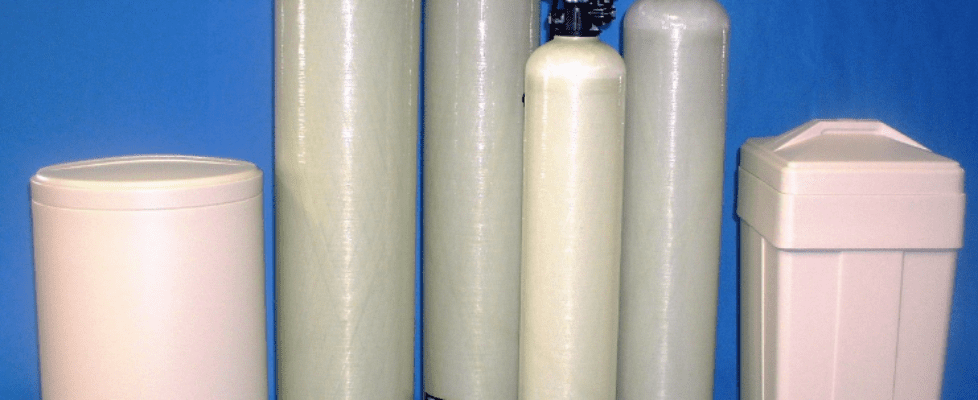What You Should Know About Water Softeners
Hard water is a common problem in many households, and while it’s safe to drink, it can create several inconveniences in daily life. From leaving stains on sinks and drains to making soaps and shampoos less effective, hard water can affect everything in your home. Installing a water softener is a practical solution to mitigate these issues. Here’s what you need to know about hard water, its effects, and how water softeners can help.
What is Hard Water?
Hard water contains high levels of minerals such as calcium, magnesium, manganese, and carbonate. While these minerals are not harmful to consume, they can create various problems around the house:
- Soap and shampoo don’t lather well: This makes it harder to clean your skin and hair properly.
- Stains around drains and sinks: These stains, caused by mineral buildup, can leave an unpleasant smell.
- Hard water residue on dishes and glassware: It leaves unsightly spots, making dishes appear unclean.
Why You Should Consider a Water Softener
Installing a water softener system can significantly improve the quality of water in your home. It works by reducing the mineral content in hard water, making it “soft” and more manageable. Here are the key reasons to invest in a water softener:
1. Protect Your Appliances
Hard water can lead to mineral buildup in home appliances such as washing machines, dishwashers, and water heaters. Over time, this reduces their efficiency and lifespan, leading to higher repair or replacement costs. By softening the water, you can prevent scale buildup and extend the life of these appliances.
Appliances most affected by hard water:
- Washing machines
- Dishwashers
- Water heaters
- Coffee makers
2. Improve Cleaning Efficiency
Soft water allows soaps and detergents to lather better, resulting in cleaner clothes, dishes, and surfaces. With soft water:
- Clothes come out softer and brighter after washing.
- Dishes are free of water spots and streaks.
- Bathroom tiles and fixtures are easier to clean without harsh stains or residue.
3. Prevent Plumbing Damage
Hard water doesn’t just affect visible surfaces; it also causes scale buildup inside your pipes. This restricts water flow and increases the risk of blockages and leaks. Over time, this can lead to expensive plumbing repairs. A water softener reduces this risk by preventing minerals from accumulating in your pipes.
Types of Water Softeners
When choosing a water softener, it’s essential to select one that fits your home’s size, water usage, and budget. Here are some popular options:
Dual Tank Systems
A dual tank water softening system is an efficient choice for continuous access to soft water. These systems have two tanks:
- One tank holds the softening material that removes minerals like calcium and magnesium.
- The second tank ensures a steady flow of softened water even during the recharge cycle.
This setup is ideal for larger households with high water usage.
Salt-Based Systems
Most water softeners work using salt-based systems, where sodium ions replace the calcium and magnesium in hard water. These systems require periodic refilling with salt tablets to maintain their efficiency.
Advantages of salt-based systems:
- Reliable and effective at softening water.
- Widely available and easy to maintain.
Considerations:
- Regular maintenance is required to refill the salt.
- Not suitable for people with sodium-restricted diets unless a reverse osmosis system is installed for drinking water.
Factors to Consider When Choosing a Water Softener
1. Determine the Hardness Level of Your Water
The first step is to understand how hard your water is. You can:
- Schedule a test with your local water testing company.
- Purchase a home water testing kit for quick and convenient results.
Water hardness is measured in grains per gallon (GPG). The higher the GPG, the harder the water, and the more powerful the softener you’ll need.
2. Size of Your Home
The capacity of your water softener should match the size of your home and the number of occupants. Larger households with more water usage will require systems with a higher grain capacity. A dual tank system is a great option for homes with heavy water consumption.
3. Maintenance Requirements
Water softeners require regular maintenance to function optimally:
- Salt refills: Salt-based systems need replenishing every 3-4 weeks, depending on water usage.
- System cleaning: Regularly clean the brine tank to prevent salt buildup.
- Filter replacements: Some systems include filters that need periodic changing to maintain water quality.
4. Budget and Installation
Water softeners are available at various price points, depending on their type, capacity, and features. While salt-based systems are more affordable, dual tank systems and advanced models may cost more upfront but offer better long-term benefits. Consult a local water softener provider to find the best system for your home and budget.
Benefits of Soft Water
Once you install a water softener, you’ll notice immediate improvements in your home. The benefits of soft water include:
- Softer skin and shinier hair after bathing.
- Cleaner laundry with reduced fading and fabric wear.
- Improved efficiency of appliances like dishwashers and water heaters.
- Longer lifespan for plumbing and fixtures, saving you money on repairs.
Conclusion
Living with hard water can be frustrating, but installing a water softener can transform your household water experience. From protecting appliances to improving the cleanliness of your home, a water softener is a worthwhile investment. Make sure to test your water, choose the right system for your needs, and maintain it properly to enjoy the full benefits of soft water.
If you’re unsure about the best water softener for your home, consult a Super Brothers. We can guide you through the selection process and help with installation to ensure optimal performance.


